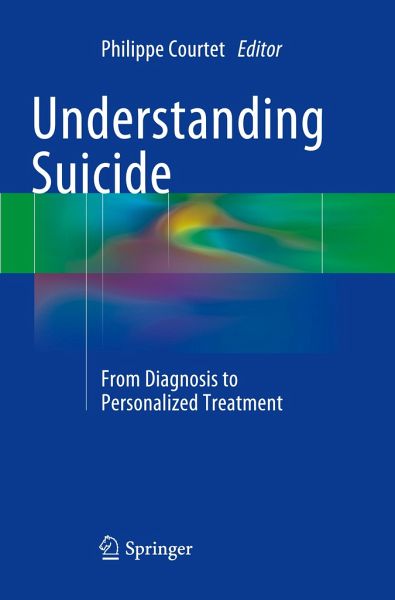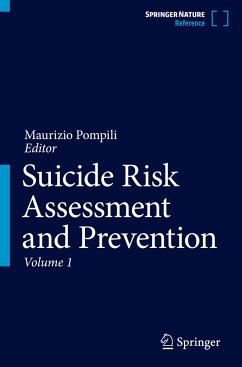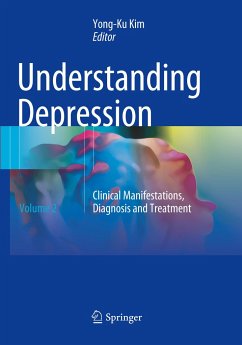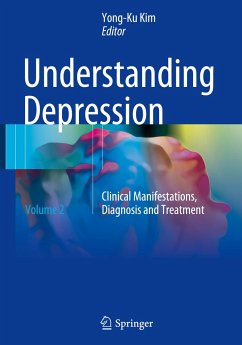
Understanding Suicide
From Diagnosis to Personalized Treatment
Herausgegeben: Courtet, Philippe
Versandkostenfrei!
Versandfertig in 6-10 Tagen
83,99 €
inkl. MwSt.

PAYBACK Punkte
42 °P sammeln!
In this book international experts address a range of key current issues relating to suicide. The opening chapters discuss nosology, definitions, clinical determinants, and conceptual models of the suicide process and consider the evidence regarding potential biomarkers of suicide risk based on neuroscientific research. Adopting a neo-Durkheimian perspective, the role of various social factors in the genesis of suicidal behavior is then explored in depth. Practical user-friendly tools that facilitate risk assessment by clinicians are provided, and detailed consideration is given to efficient a...
In this book international experts address a range of key current issues relating to suicide. The opening chapters discuss nosology, definitions, clinical determinants, and conceptual models of the suicide process and consider the evidence regarding potential biomarkers of suicide risk based on neuroscientific research. Adopting a neo-Durkheimian perspective, the role of various social factors in the genesis of suicidal behavior is then explored in depth. Practical user-friendly tools that facilitate risk assessment by clinicians are provided, and detailed consideration is given to efficient and innovative strategies for the prevention of suicide and the treatment of suicidal behavior, such as psychotherapy, psychopharmacological approaches, and effective organization of care, including surveillance and the use of online tools. The final part of the book focuses on the need for and development of a personalized approach within the field of suicide prevention.












